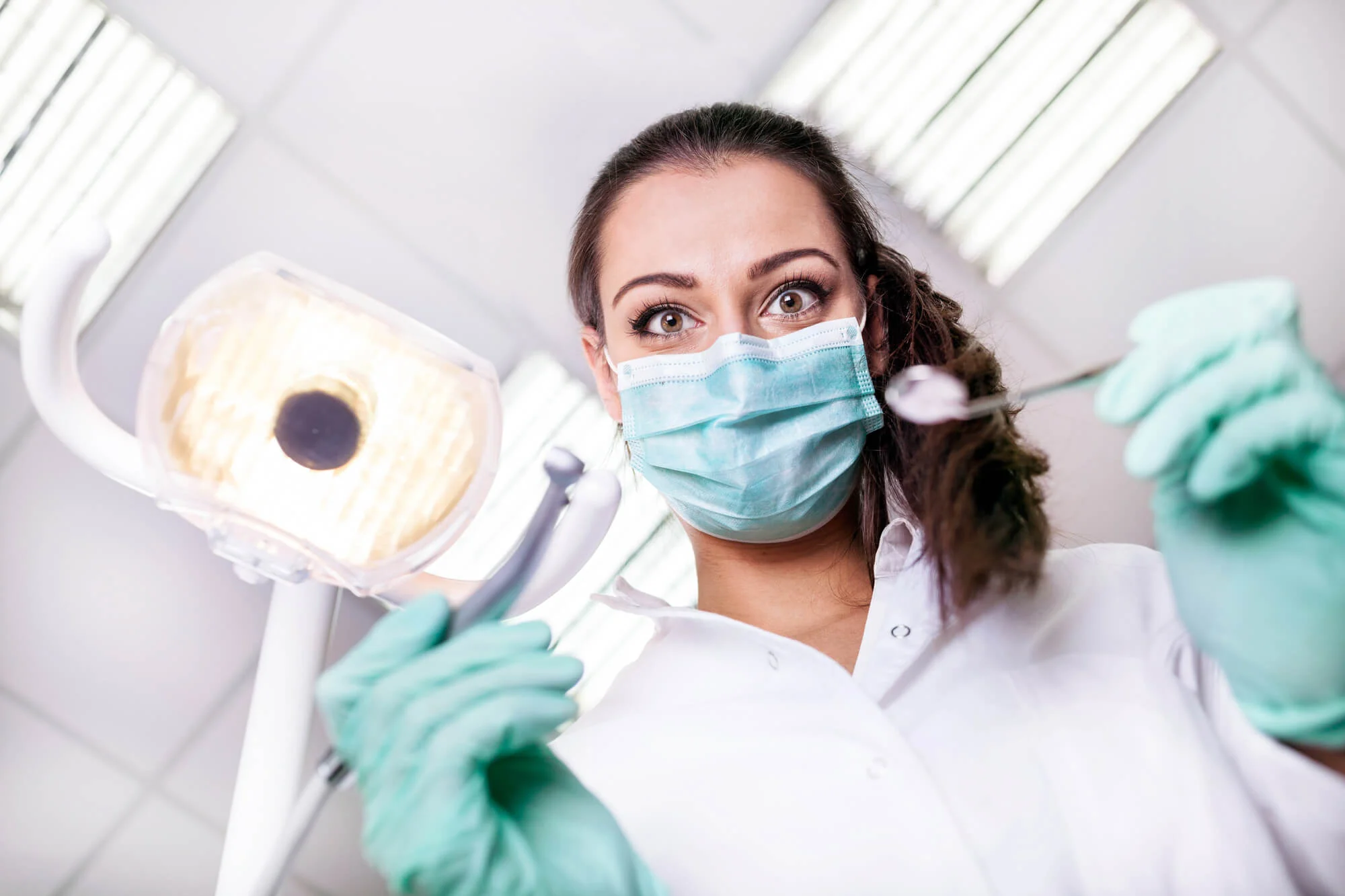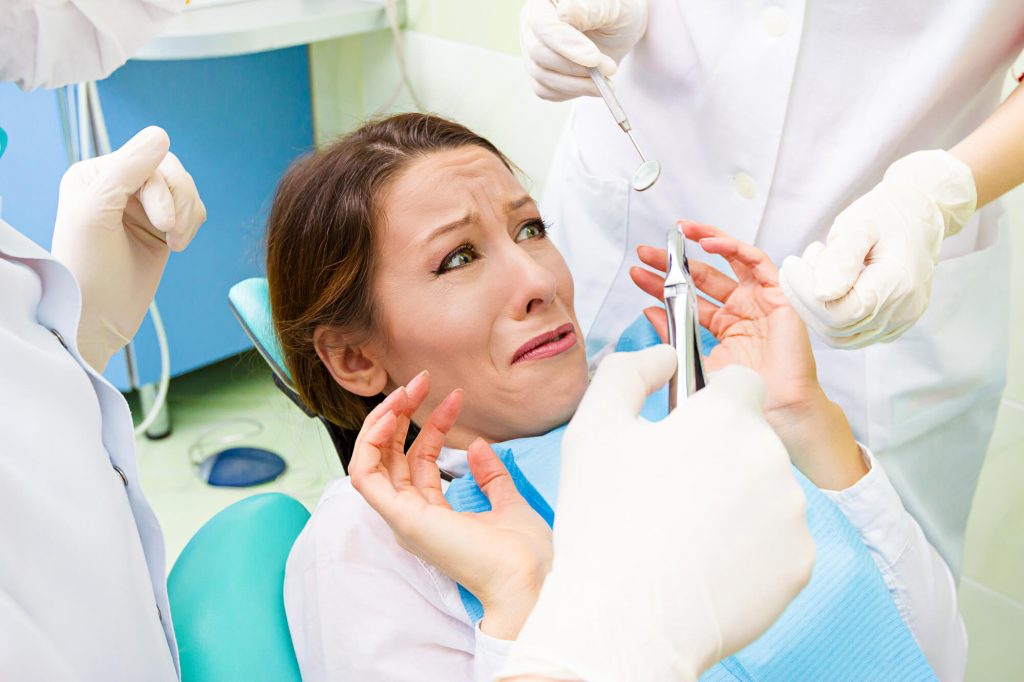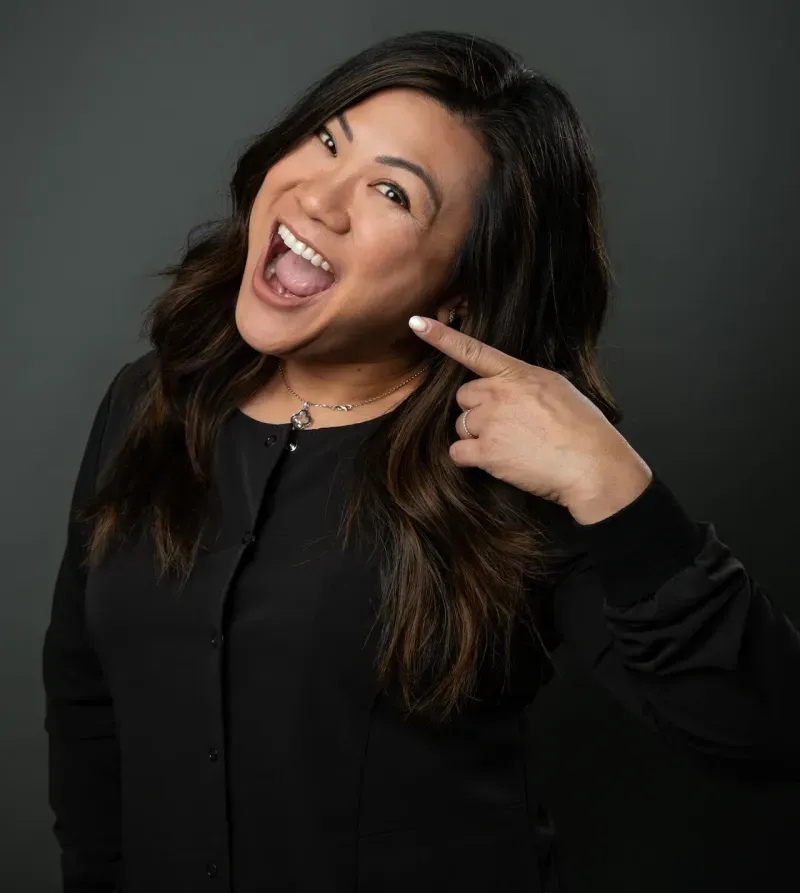Dental phobia is nothing to laugh at. Anxiety and phobia related to dental health are common, with significant prevalence and impact on patients’ willingness to seek treatment. Dental phobia is considered an extreme form of dental anxiety, often leading to avoidance of dental care. If left unaddressed, this condition can seriously impact a person’s ability to access oral healthcare.
Systematic reviews support evidence-based approaches to managing dental phobia and improving patient outcomes. Oral health avoiding due to dental phobia can worsen dental problems over time. However, thanks to pain free dentistry in Las Vegas, those who suffer from it can overcome their fear of going to the dentist so they can get the help they need.
What You Should Know About Dental Phobia
What Exactly Is Dental Phobia?
Also known as dentophobia, odontophobia, dentist phobia, and dental anxiety, dental phobia refers to the fear of getting diagnosed with dental issues and receiving dental care treatments.
According to the American Psychiatric Association, dental phobia is defined in the Diagnostic and Statistical Manual as a mental health condition. This condition encompasses the fear of all minor and major dental problems and procedures, and it manifests itself as avoidance of their dental provider. Dental phobia is classified as a specific phobia, characterized by excessive fear, intense fear, and irrational fear that is out of proportion to the actual danger posed by dental procedures.
When these individuals schedule an appointment, they usually have trouble sleeping the night before, cry, or even have difficulty breathing once they’re in the dentist’s office.
How Much Does It Affect the Population?
Although generalized, dental anxiety or dental fear isn’t a much-explored field of subject, it’s a real phenomenon that affects more than 75% of the adult population in the United States. Dental phobia is recognized among mental disorders and can be assessed using tools like the Dental Anxiety Scale and Dental Fear Survey to measure severity and prevalence. Of those individuals, 10% experience a more profound fear. As a result, these individuals avoid visiting the dentist for any reason, and their oral and overall health suffers.
What Are the Causes of Dental Phobia?
Previous Traumatic Experiences with Dentistry
In most cases, the primary cause of dental phobia is the fear of pain associated with previous traumatic experiences with dentistry. Since humans generally have long memories, their negative dental visits stay with them long after leaving the dentist’s office. If their previous dental care provider has hurt them in the past, they usually find it challenging to trust any dentist again.
Moreover, sights, sounds, and smells are strongly linked to memory. For this reason, any stimulus associated with the dentist is enough to send their heart rates into the stratosphere.
Some patients exhibit manifestations of dental phobia at the sight of a dental practitioner, the sound of a dentist’s drill operating on another patient, or the smell of sterile, clinical odors.
It’s also possible for some patients to develop a fear of the dentist even if they haven’t had any traumatic experiences in the past. In such cases, the fear usually stems from the negative stories they heard from other people. Some of them fear that they’ll end up feeling pain and discomfort as the dentist uses a drill, pulls a problematic tooth, or places a dental implant.
Embarrassment
Patients with severely damaged or decayed teeth are usually self-conscious about the state of their oral health, hygiene, and possible mouth odor. Furthermore, they may feel embarrassed about talking to the dentist about their dental health issues.
Feelings of Helplessness
Some patients aren’t comfortable with the idea of sitting in the dental chair or dentist’s chair and leaning back with their mouths wide open. They feel helpless and violated since they don’t get to see what’s happening while the dentist pokes around inside their mouths. Besides struggling with the perceived lack of control, the dentist’s invasion of their personal space also reinforces their anxiety.
Impact of Dental Phobia on Oral Health
Dental phobia can have a profound effect on oral health, often leading individuals to delay or completely avoid dental care. This avoidance can result in poor oral health, as untreated dental problems like tooth decay, gum disease, and missing teeth become more severe over time.
When dental issues are left unaddressed, they can cause chronic pain, discomfort, and even make it difficult to eat or speak properly. Beyond the mouth, poor oral health has been linked to serious systemic health problems, including heart disease, diabetes, and respiratory infections.
By not visiting the dentist regularly, those with dental phobia put both their oral health and overall health at risk. Addressing dental phobia and seeking appropriate dental care is essential for preventing these complications and maintaining a healthy smile.
What Are the Best Ways to Combat Dental Phobia?
The first step to overcoming dental phobia is acknowledging and understanding the root of your fears. Unless you try to figure out why it’s there in the first place, you won’t be able to move past it. After some reflection, it’ll be easier for you to identify whether you’re struggling with mild fears over seeing the dentist or if you have a true phobia.
Cognitive-behavioral therapy (CBT) is an effective treatment for specific phobias such as dental phobia, and is often tailored to address the unique fears associated with dental care.
Mild dental fears are best addressed by simply going to the dentist instead of avoiding it at all costs. On the other hand, a dental phobia tied to an underlying anxiety disorder may call for a combination of therapies and medications. Exposure-based CBT can help patients gradually undergo dental treatment as part of their recovery process. Some individuals with severe dental anxiety may only seek urgent treatment when dental problems become emergencies.
Find the Right Dentist for You
If you want to feel more comfortable and confident about receiving the care you need, you’ll have to find the right dentist for you. Be sure to look for a practice that offers personalized and high-tech dental treatments, positive reviews from current patients, a relaxing and comfortable atmosphere, and a friendly and caring staff.
Use Relaxation Techniques
It’s best to take some time to get in the right mindset days or hours before your dental appointment. Many patients find it helpful to use relaxation techniques such as meditation, stretches, or deep controlled breathing.
Give Exposure Therapy a Try
Today, a field of psychiatry devoted to dental phobia is specifically designed to assist dental care providers in learning the best ways to ease their patients’ fears. The ultimate goal is to encourage these patients to visit the dentist more often to achieve better oral health.
Exposure therapy is a type of psychotherapy commonly used to address dental phobia because it involves visiting the dentist on a gradual basis. You may start by visiting a dentist’s office without sitting down for an exam until you’re comfortable enough to take on a full appointment.
Talk to Your Dentist
It’s never a good idea to keep all of your fears bottled up. It’s best to let your dental care provider know how you feel so that they can give you the special attention you need. Since dental phobia is so common, your dentist has most likely had a lot of experience helping patients who struggle with it.
Preparing for a Dental Visit
Taking steps to prepare for a dental visit can make the experience much less stressful, especially for those who struggle with dental anxiety. Start by having an open conversation with your dentist about any fears or concerns you may have. A good dentist will take the time to explain each dental procedure, show you the dental instruments, and discuss anesthesia options such as nitrous oxide sedation or conscious sedation to help you feel more at ease.
Practicing relaxation techniques like deep breathing, muscle relaxation, or meditation before and during your appointment can also help reduce anxiety. Arriving early at the dental clinic gives you a chance to get comfortable in the dental setting and complete any necessary paperwork without feeling rushed. By preparing ahead of time, you can help ensure your dental visit is as calm and positive as possible.
Dental Treatment Options
There are a variety of dental treatment options designed to help patients manage dental anxiety and dental phobia. Behavioral techniques, such as gradual exposure to the dental setting and relaxation techniques, can help anxious patients become more comfortable over time. Cognitive behavioral therapy (CBT) is another effective approach for addressing negative feelings and irrational fears related to dental procedures.
For those who need additional support, sedation dentistry offers solutions like nitrous oxide (laughing gas), IV sedation, and even general anesthesia to help patients relax or sleep through their dental treatment. Many dentists also use advanced technology, such as laser dentistry, to minimize pain and discomfort during dental procedures. It’s important to discuss your concerns and preferences with your dentist so they can recommend the best treatment plan tailored to your needs.
General Anaesthesia in Dentistry
For patients with severe dental anxiety or dental phobia, or those who need to undergo complex dental procedures, general anesthesia can be a valuable option. General anesthesia allows patients to be completely unconscious during dental treatment, ensuring they feel no pain or discomfort.
This type of sedation is administered and closely monitored by a trained anesthesiologist to ensure safety throughout the procedure. While general anesthesia can make dental care possible for those who might otherwise avoid the dentist altogether, it’s important to discuss the potential risks and benefits with your dentist. Together, you can determine if general anesthesia is the most appropriate choice for your specific situation, helping you receive the dental care you need in the safest and most comfortable way possible.
Experience Pain-Free Dentistry in Las Vegas!
Whether you’re struggling with mild dental anxiety or true dental phobia, contact Dee for Dentist to schedule your consultation today. We’ll gladly discuss specific methods and develop a customized treatment plan to meet your specific needs.



